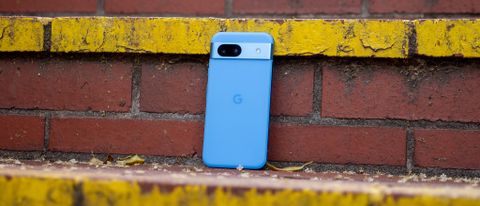Android Central Verdict
The Pixel 8a is Google's best mid-range hardware yet, further blurring the line between the company's flagship "premium" offerings and this mid-range winner. The cameras are still best-in-class, it's got all the AI features of the $699 Pixel 8, and thermal management has never been better. The display is still a flickering mess and a shaky history of unreliable monthly software updates makes it harder to recommend than it might otherwise be, though.
Pros
- +
Super comfortable design
- +
Flagship-level camera
- +
Tensor G3 processor
- +
120Hz AMOLED display
- +
Seven years of Pixel updates
- +
Great AI features
Cons
- -
Charging should be faster
- -
Display is awful for PWM-sensitive users
- -
Recent Pixel updates have caused issues
Why you can trust Android Central
As the Pixel evolves and figures itself out as a brand, Google has been making notable changes and refinements for the better. This year, the Pixel 8a improves on nearly every negative point of last year's Pixel 7a, and it even makes changes I didn't expect from a $500 phone.
With the Pixel 8, Google rounded the corners and put a matte texture on the back, making for a comfortable phone that consistently looks nice. The Pixel 8a has adopted these same changes and even rounded the corners just a bit more for an almost Galaxy S3-esque "smooth pebble" design. My gosh, if it isn't the most comfortable phone I've held in a long time because of it!
In addition to that, we're looking at the same processor in the Pixel 8, the same display as that phone, the same amount and speed of RAM, the same storage speed, the same water resistance rating, and the same powerful AI-driven Tensor G3 processor. It certainly makes you wonder why you would ever need a more expensive Pixel phone, doesn't it?
This initial review was conducted after using the phone as my primary phone over the duration of four full days. I'm using the Pixel 8a on T-Mobile's 5G network, and it runs the latest version of Android 14, which the phone will ship to customers.
Google Pixel 8a: Price and availability
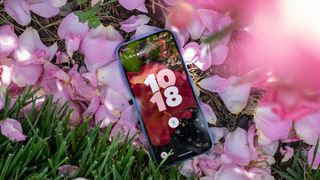
The Google Pixel 8a officially launched on May 14, 2024, with a starting retail price of $499 USD / $679 CAD / £499 / Rs 52,999 for the model with 128GB of internal storage. For the first time ever on a Pixel A-series phone, Google is also selling a 256GB storage model for an additional cost. The phone ships in your choice of Obsidian, Porcelain, Bay, and Aloe colorways.
As you might expect, the best Google Pixel 8a deals will get you the phone at a reduced price — maybe even free — especially if you have an older phone to trade in.
The Pixel 8a comes in completely plastic-free packaging.
These are all the countries where the Google Pixel 8a is launching:
- U.S.
- Canada
- Austria
- Belgium
- Czech Republic
- Denmark
- France
- Germany
- Italy
- Ireland
- Netherlands
- Norway
- Poland
- Portugal
- Spain
- Sweden
- Switzerland
- UK
- Australia
- India
- Japan
- Singapore
- Taiwan
Google Pixel 8a: Display and design
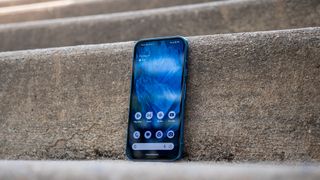
Of all the Pixel phone designs over the years, the Google Pixel 8a is my new favorite. It melds the unique camera bar design from the more expensive Pixel 8 series with further rounded corners, and a matte finish back that feels heavenly.
This is a phone that's built for human hands and it feels wonderful to use it one-handed, even if the display is a bit big to reach all the edges with one thumb without shifting the phone around. Round corners do a lot for long-term usability and comfort. Sharp corners on phones like the Samsung Galaxy S24 Ultra are just plain uncomfortable, made even worse because it's a super heavy phone.
The Pixel 8a isn't shockingly light by any measure but it does come in at around 5 grams lighter than last year's Pixel 7a. At 188g, you'll feel it in your pocket but it's not heavy enough to cause finger fatigue if you find yourself holding it for a long time. As actor Chris Evans once pointed out, heavy phones often cause pinky finger fatigue.
| Category | Google Pixel 8a |
|---|---|
| Chipset | Google Tensor G3 |
| Memory | 8GB LPDDR5x RAM |
| Storage | 128GB/256GB UFS 3.1 |
| Display | 6.1-inch AMOLED Actua Display, 2400x1080 resolution (430 ppi), 120Hz, HDR10+, 1,400 nits, Gorilla Glass 3 |
| Rear Camera 1 | 64MP, ƒ/1.89, 0.8μm pixel size, OIS, 4K video @ 30/60FPS, 240FPS super slow-mo video |
| Rear Camera 2 | 13MP, ƒ/2.2, 1.12μm pixel size, 120-degree FoV, OIS, 4K video @ 30 FPS |
| Front Camera | 13MP, ƒ/2.2, 1.12μm pixel size, 95-degree FoV, 4k video @ 30FPS |
| Battery | 4492 mAh, 18W wired charging, 5W Qi wireless charging |
| Dimensions | 152.1 mm x 72.7 mm x 8.9 mm |
| Weight | 188 grams |
| Water and dust resistance | IP67 |
| Security | Titan M2 Security Chip, VPN by Google One, In-screen fingerprint sensor |
| Colors | Obsidian, Porcelain, Bay, Aloe |
| OS | Android 14 with Pixel features |
| Update guarantee | Seven years of Pixel updates |
Beyond the weight and shape, Google is using surprisingly premium materials for most of the phone. The back is still plastic, but it feels less like plastic than ever, thanks to a beautiful, fingerprint-resistant matte finish. I praised Google's use of a matte finish in my Pixel 8 Pro review, and this phone feels nearly identical to that.
There's a slight hollow feeling if you tap the back when compared to a glass-backed phone like the more expensive Pixel 8 models have, but it doesn't come off feeling cheap.
Likewise, the "satin aluminum" frame looks extremely premium, particularly on the Bay blue model I have for review. This part, too, has a matte finish that won't attract fingerprints and will leave your Pixel 8a looking clean and shiny even after using it for hours.



The display has been upgraded yet again this year. The display is spec-for-spec identical to the Pixel 8 in all but one way: it's not LTPO. That means this 120Hz panel shifts between 60Hz and 120Hz depending on what's happening on screen, while the Pixel 8 and Pixel 8 Pro's displays can smoothly shift between 1Hz and 120Hz. In plain language, the Pixel 8a's display is slightly less battery-efficient.
But the rest of the panel is right on the money in most measurements. Google calls it the "Actua display" in reference to its color accuracy, which helps highlight the quality of the camera. It also gets incredibly bright, with a peak brightness of 2000 nits and a peak HDR brightness of 1400 nits.
The downside is that PWM-sensitive folks are going to find this display incredibly uncomfortable. Like the mainline Pixel series, this uses 240Hz PWM flickering at all brightness levels, quickly turning the display on and off to fool your eyes into thinking it's bright or dim instead of adjusting voltage like traditional displays and lights.
This PWM rate is the lowest of any major phone series and is truly awful for any flicker-sensitive person. Google doesn't offer an anti-flicker or flicker-reduction mode like the OnePlus 12R or any OLED-donning Motorola phone, which makes those phone much better options if you're PWM-sensitive.
Google Pixel 8a: Performance and battery life
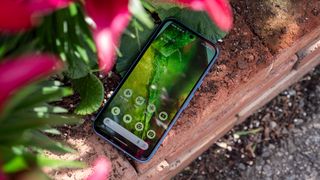
The Google Pixel 8a sports the exact same Google Tensor G3 processor that's found in the more expensive Pixel 8 and Pixel 8 Pro phones. That means Google was able to pack in the same AI features as those more expensive phones.
A huge part of that capability is in the Tensor G3's upgraded NPU capabilities which, according to benchmarks we ran, is nearly 3x faster than the NPU in the Pixel 7a. That NPU, or Neural Processing Unit, is what's responsible for efficiently running AI routines on-device and ensuring that the phone quickly processes AI-based tasks and also keeps them from needing to be uploaded to a cloud server for privacy reasons.
Overall performance of the phone, based on benchmarks, is also better than both the Pixel 7a and even the more expensive Pixel 8 Pro. Google said it was able to concoct a new thermal management method, and while the phone still throttles heavily at around 40 degrees Celsius, it takes longer to hit that thermal limit.


However, when compared to the OnePlus 12R, our current favorite mid-range phone, the Pixel 8a's performance is quite lacking. Not only that, but the Pixel 8a's performance-per-watt is substantially worse than the OnePlus 12R. In plain terms, your battery life is going to drain more quickly on a Pixel 8a than a OnePlus 12R when doing anything that taxes the processor.
So far, battery life hasn't been particularly impressive for me. Granted, I have to run the display at 100% brightness all the time to keep headaches at bay, otherwise, the phone's PWM-laden flickering display makes my head hurt something fierce.
Our parent company runs lab tests via the Future Labs department, and those test results show that the Pixel 8a gets one hour of better battery life than the Pixel 8 Pro in the battery rundown test at the default 60Hz refresh rate. In other words, if you're using default settings — 60Hz display, auto brightness — then battery life will be quite excellent.
I'll be putting the phone through the rigors over the next few days and weeks to better determine what it's best at but, for now, early tests show that Google has made important improvements to some of Tensor's biggest weak points, even if the processor is still slower and less efficient than the competition.
Google Pixel 8a: Software
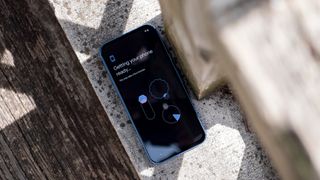
Google's Pixel software has really come into its own over the years, particularly in the past six months, as Google has added Gemini features to the platform. The Pixel 8a sports all the same AI features as the regular Pixel 8, including Magic Eraser, Zoom Enhance, Best Take, Audio Magic Eraser, Circle to Search, and more.
Not only that but the Pixel 8a is set to receive seven years of Android updates, meaning it'll see Android 21 before the end of its shelf life. It also has a free VPN built-in, something only Pixel phones provide.
That's a huge value add for a phone in the $500 price range, as these devices normally don't have the processing capabilities to be able to pull off impressive AI features like this. It's a huge win for anyone not wanting to spend flagship money but still get flagship features.
Of course, this means there's almost nothing new on the Pixel 8a when compared to the Pixel 8 series. The lone exceptions are the upgraded Guided Frame utility and the improved Family Link parental controls setup.
Initially, Guided Frame was just used as a way to help vision-impaired users take better photos and selfies. Now, Guided Frame can utilize both front and rear-facing cameras to describe what your phone's camera is seeing.

Google also improved Family Link by making the setup process easier and clearer, which goes nicely with the recent Pixel Watch update that adds School Time and other important parental control functions.
But under the shiny exterior of AI features and update promises lingers an underlying distrust built up from years of screw-ups on Google's part. As I said last week, the Pixel series has become known for its buggy updates and weird problems.
Things have slightly improved since the Pixel 6 days, but over the past year alone, we've seen monthly updates cause battery drain issues, cellular connectivity issues, overheating issues, and even a crucial storage bug that made it impossible to use many apps.
These are just a handful of issues Pixel owners have had to deal with to some degree over the past few years, and it makes me wonder if monthly updates are really worth the issues they seem to create.
Of course, the flip side to all this is that Pixel phones nearly always get updates before any other phone on the market.
Google Pixel 8a: Cameras
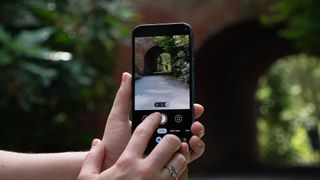
Whenever I review a Pixel phone and compare it to other phones, my thoughts usually begin with, "I wonder how much worse this other phone's camera is compared to the Pixel."
Google Pixel phones have long been the pinnacle of mobile photography, and while some other phones sometimes beat it, Pixel's consistently excellent camera performance delivers a reliability factor that can be envied.
In my testing so far, I can confirm that the Pixel 7a and Pixel 8a's cameras produce identical results. If nothing, that means you can save some money and get a Pixel 7a while still getting a stellar camera.





Comparing the Pixel 8a to the OnePlus 12R — another excellent $499 phone — shows that there's not a huge gap between the two in most shots, but the Pixel 8a definitely wins more often than not. In many cases, the Pixel often gets the exposure mostly correct and ends up pulling out more detail, resulting in a better-looking picture because of it.
Photos taken on the Pixel 8a exhibit the classic high contrast, color-accurate imagery that Google's Pixel phones are known for. Pixels are also the best when trying to capture objects in motion — like pets or kids — which means the Pixel 8a is automatically the better choice for parents or folks who love to take lots of photos of their pets.
Google Pixel 8a: The competition
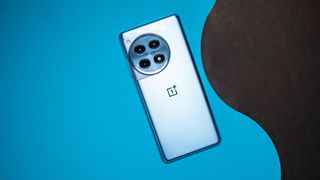
For the price, it's hard to turn down the Pixel 7a. The best Pixel 7a deals will get you the phone for $350. Considering that the Pixel 7a is still due for four more Android updates (up to Android 19), this one has quite a bit of life left in it. You'll also be getting a camera with identical quality capture as the Pixel 8a, although battery life and performance are worse than Google's latest can provide.
But if battery life and performance are your chief concern, the OnePlus 12R is the best buy at $500. It has a Snapdragon 8 Gen 2 processor, which is roughly twice as fast as the Tensor G3 in the Pixel 8a for gaming and other graphics-intensive applications. OnePlus doesn't offer the same level of long-term support or some of the Pixel-exclusive AI features, though, and the camera is not as good as a Pixel.
Google Pixel 8a: Should you buy it?
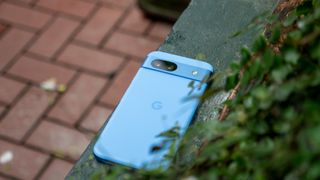
You should buy this if...
- You plan to hold on to your phone for years.
- You want the best camera in its class.
- You love Google AI features and Pixel features.
You shouldn't buy this if...
- You're sensitive to flickering lights or PWM-dimmed displays.
- You need the best performance for the price.
- You need fast charging and/or more than 24-hour battery life.
As the price of the Pixel A-series continues to climb in many regions, its value continues to encroach on full flagship-tier phones. There's also something to be said when the best Pixel 8 deals can get you a better phone — the regular Pixel 8 — for the same price as the 8a. Not only that, but the OnePlus 12R also retails for $499 and packs a significantly faster and more efficient processor onboard, plus a better display that's also more eye-friendly.
But there's no guarantee that you can snag a Pixel 8 for $499, which means the Pixel 8a is the best buy at the price if long-term updates and camera quality are your top features. Google's update quality has been a little shaky over the past few years, though, which hangs a cloud over an otherwise impeccable record of update speed.
For now, I'd personally pick a Pixel 7a over Google's latest. Sure, it's only got four more years of Android updates, but I'm not convinced that current Tensor processors will be fast enough to feel snappy for longer than that. At $350, the 7a is an unbeatable deal with camera quality that matches the 8a, even if it doesn't have as many AI features.

